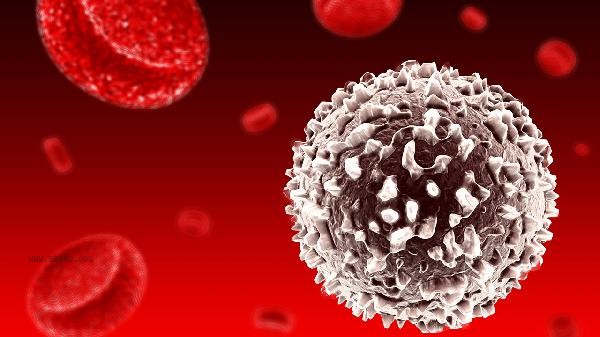A high number of white blood cells usually indicates the presence of inflammatory reactions or infections in the body, mainly related to bacterial infections, viral infections, stress reactions, blood system diseases, drug factors, etc.
1. Bacterial infection:

Common bacterial infections such as bacterial pneumonia and urinary tract infections can stimulate bone marrow hematopoietic function, leading to an increase in white blood cells mainly composed of neutrophils. Blood routine examination often shows a neutrophil count exceeding 70%, which may be accompanied by symptoms such as fever and local redness and swelling. Antibiotic treatment is needed to control the source of infection.
2. Viral infection:
EB virus, influenza virus and other infections can cause an increase in the proportion of lymphocytes. This type of white blood cell elevation is usually lower than bacterial infection, and the blood count shows an absolute increase in lymphocytes, which may be accompanied by symptoms such as sore throat and enlarged lymph nodes. In most cases, symptomatic supportive treatment is required.
3. Stress response:

Intense exercise, emotional tension, or postoperative trauma can stimulate the secretion of adrenal cortex hormones, leading to a transient increase in white blood cells. This physiological elevation usually does not exceed 12 × 10 ⁹/L, with no other abnormal symptoms, and can recover on its own after rest. 4. Hematological disorders: Hematological disorders such as leukemia and myelodysplastic syndrome can lead to abnormal proliferation of white blood cells. This type of elevation is often accompanied by immature cells, which may be accompanied by symptoms such as anemia and bleeding tendency, and further diagnosis needs to be made through bone marrow puncture.
5. Drug effects:
Corticosteroids, adrenaline, and other drugs can stimulate the release of white blood cells. Long term use of immunosuppressants may also cause reactive leukocytosis, which usually gradually returns to normal after discontinuation. Regular monitoring of blood routine changes is necessary during medication. When high white blood cell count is found, it should be judged comprehensively based on clinical symptoms. It is recommended to avoid testing immediately after intense exercise and maintain sufficient rest before re examination. It is recommended to supplement vitamin C and protein in moderation in daily life, but it is important to avoid taking white blood boosting drugs on your own. If it continues to rise or is accompanied by symptoms such as fever and fatigue, further examinations such as blood smears and inflammatory markers should be conducted in a timely manner. Pregnant women and children with white blood cell abnormalities should seek medical evaluation as soon as possible.










Comments (0)
Leave a Comment
No comments yet
Be the first to share your thoughts!